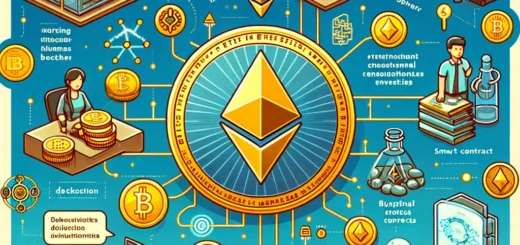What to Know Before Buying Bitcoin (BTC)
If you’re considering buying Bitcoin but aren’t quite there yet, there are a few important things you need to know before diving in. This guide will help clarify the essentials of buying Bitcoin, including what Bitcoin is, its profitability, and how to avoid scams and fraud.
What is Bitcoin?
Bitcoin, cryptocurrencies, and blockchain technology are unlike traditional finance. Bitcoin was created in response to the failures of traditional banking highlighted by the 2008 global financial crisis. The mysterious creator, Satoshi Nakamoto, emphasized personal freedom in financial transactions, privacy, and the flaws of centralized finance.
Bitcoin operates on a decentralized system without a central authority that can control or seize your funds. This decentralization also enhances security as there’s no single point of failure. The Bitcoin network is a peer-to-peer, open-source project similar to Wikipedia or Linux. Anyone can run a Bitcoin node, develop applications on its protocol, or duplicate it, making Bitcoin a unique tool for financial freedom.
Profitability of Trading Bitcoin
While there are many guides online about buying Bitcoin, many people view it as a get-rich-quick scheme. Bitcoin has indeed made early adopters wealthy, evident from its impressive performance over the past decade.
However, there are no guaranteed returns with Bitcoin. It’s highly volatile, and many have also lost money. A golden rule is to never invest more than you can afford to lose. Despite its secure decentralized network, Bitcoin remains a nascent social experiment. Its future success or failure is uncertain.
Avoiding Frauds and Scams
Bitcoin and cryptocurrencies are often associated with fraud and hacking. In 2018 alone, hackers stole nearly $1.7 billion. This does not mean that Bitcoin itself is dangerous, but rather that security breaches often occur at cryptocurrency exchanges.
Exchanges act as banks for your crypto, but funds stored on an exchange are not truly yours, as exchanges hold the private keys. Mismanagement or hacks at exchanges can lead to loss of funds, as seen with the Mt Gox incident.
To avoid these risks, do not store your Bitcoin on an exchange. Learn how to use a Bitcoin wallet or consider hardware wallets like Ledger or Trezor.
Additionally, be cautious of the myriad cryptocurrencies beyond Bitcoin. While some are legitimate projects seeking to innovate with blockchain technology, others are outright scams. Always do your research before investing in any cryptocurrency.
Conclusion
Buying Bitcoin involves understanding its decentralized nature, the potential for high volatility, and the importance of securing your funds. By being informed and cautious, you can navigate the world of Bitcoin more safely and effectively. If you’re ready to take the plunge, use this knowledge to make informed decisions and protect your investments.



